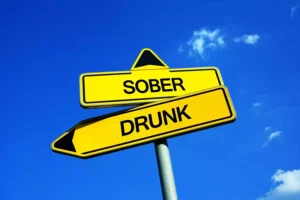
Once that source, in this instance alcohol, is cut out of a person’s lifestyle, your brain “starts seeking some other thing that stimulates the pleasure center.» Breaking this loop can help a person overcome alcohol cravings and manage their alcohol intake. They can break this loop by avoiding triggers when possible, distracting themselves in the moment, and practicing relaxation techniques. One of the main ways a person can help control and prevent alcohol cravings is by understanding what triggers the cravings in the first place.
- This suggests that overconsumption of sugar may trigger addiction-like responses in the brain, further fueling cravings for sugar.
- Incentive salience is when the motivation for a reward is driven by a person’s physiological state, learned cues, and reward associations.
- Besides inducing similar sensations, the two substances can also lead to overloading the liver when taken in excess.
The Battle Within: Confronting the Ravages of Drugs & Alcohol on the Brain

Last year, we expanded our services to include robust mental health treatment, a new outpatient location, and specialized programming for our nation’s veterans, with more to come this year! We are visually recognizing our growth with a unified look that better reflects who we are today and the passion we have for helping everyone with their addiction and mental health recovery journeys. Alcoholics often why do alcoholics crave sugar develop certain coping mechanisms to deal with the challenges and stresses of life. These coping mechanisms may involve using alcohol as a way to numb emotional pain or alleviate stress. When alcohol is no longer an option, individuals may turn to sugar as a substitute. Sugar can provide a similar temporary relief or distraction from emotional distress, leading to cravings for sweet foods or beverages.
Substance Abuse and Autism Spectrum Disorder
Some individuals may have a genetic predisposition to prefer sweet tastes. This preference for sweetness can be heightened in individuals with a history of alcoholism, leading to an increased desire for sugar to satisfy their cravings. While these findings are preliminary, they suggest a promising direction for future research https://ecosoberhouse.com/article/10-best-alcohol-addiction-recovery-books/ and potential treatment strategies for AUD, including the phenomenon of sugar cravings in recovery. As always, it’s important to consult with healthcare professionals when considering new treatments or strategies for managing AUD. Understanding the reasons behind sugar cravings in recovering alcoholics is crucial.
The Sober Curious Movement: Redefining Socializing and Sobriety
It’s important to be mindful of portion sizes and choose snacks that align with individual nutritional needs. The gut microbiome, a community of microorganisms living in our intestines, plays a significant role in human health and disease. Recent research suggests that the gut microbiome might also play a role in addiction, particularly in the context of alcohol use disorder (AUD). This section will discuss the influence of alcohol on the gut microbiome and potential microbiome-directed therapies for AUD. Unmask the reality of eating disorders during National Eating Disorders Awareness Week. Explore the mental effects of alcohol, from immediate impact to long-term consequences, and protect your brain health.
Nutritional Deficiencies
- Alcoholism is influenced by a combination of genetic, environmental, and behavioral factors.
- Specifically, we will discuss the role of pre-treatment glucose levels and the impact of heavy drinking on these levels.
- Recovering alcoholics often develop a strong emotional association with sugar.
- While it might be a relief to crave something else after quitting alcohol, sugar cravings must also be managed.
- Additionally, the gut-brain axis plays a role in alcoholics craving sugar.
Speak with your health care provider if you have any questions or concerns about alcohol consumption while taking Ozempic. When it comes to understanding the connection between alcohol addiction and sugar cravings, several nutritional factors come into play. These factors contribute to the intense desire for sugar that many individuals in alcohol recovery may experience. Two key nutritional factors to consider are the depletion of nutrients and blood sugar imbalances. It’s important to note that the use of sugar as a substitute for alcohol can potentially lead to a sugar addiction.

Support groups, such as Alcoholics Anonymous (AA) or other recovery programs, offer a community of individuals going through similar experiences. Sharing experiences and struggles with others who understand can provide encouragement and helpful insights into managing sugar cravings in recovery. In these groups, individuals can learn from the experiences of others and gain valuable strategies for maintaining sobriety while managing sugar intake.
Stress is a common trigger for both alcohol cravings and sugar cravings in individuals in recovery. When faced with stressors, the body’s stress response can activate the same brain regions that are involved in addiction. This can heighten the desire for substances that provide temporary relief, such as alcohol or sugar.
- Understanding the coping mechanisms that individuals employ during this time can shed light on why seeking comfort and reducing stress are common responses.
- One of the main ways a person can help control and prevent alcohol cravings is by understanding what triggers the cravings in the first place.
- Proper nutrition plays a vital role in repairing the damage caused by alcohol and promoting long-term recovery.
- Nutritional deficiencies, such as those in vitamins, minerals, and amino acids, can further contribute to alcohol cravings.
